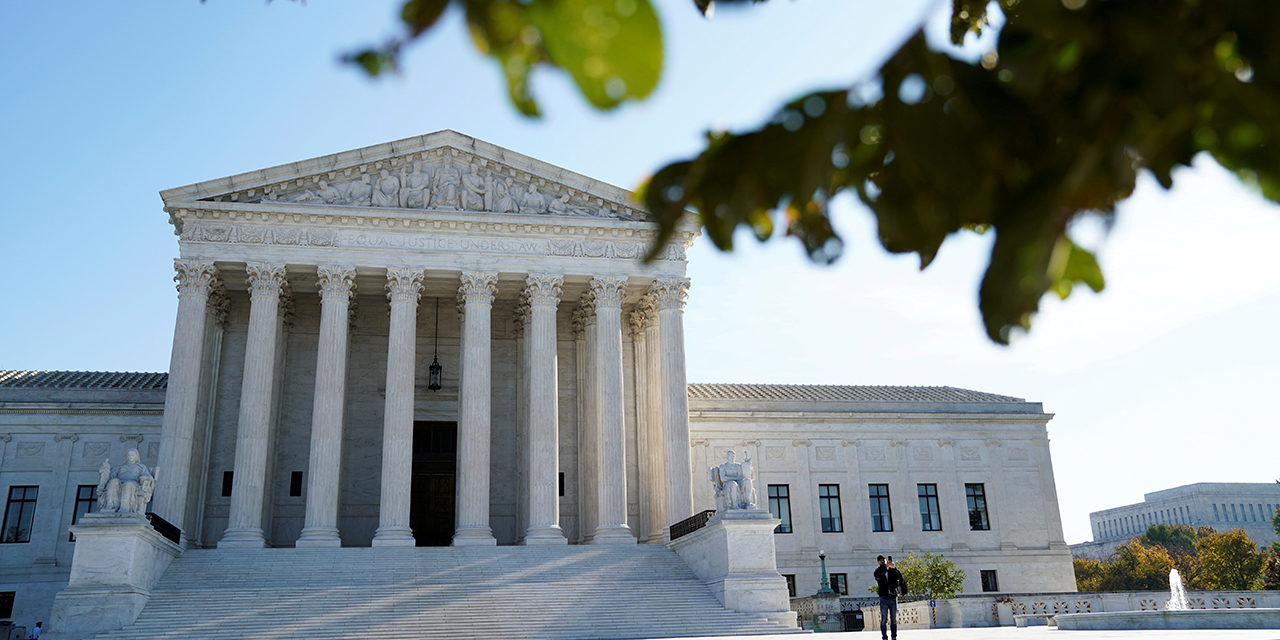Monday, April 26 proved to be a busy day at the U.S. Supreme Court. Although no major decisions were announced, various actions the high court took will echo across the cultural landscape on some of the day’s hottest topics. Christians, in particular, should take note of the importance of these actions.
Religious Freedom – Churches in Worship
One of the first things the court did was to accept a case from South Bay Pentecostal Church in California, which filed a lawsuit against Governor Gavin Newsom over COVID-19 restrictions. The case has been in the federal courts now for months. In what is yet another win for religious freedom in the Golden State, the justices sent the case back to the 9th U.S. Circuit Court of Appeals, instructing that court to reconsider the church’s right-to-worship claims in light of the high court’s recent decision in Tandon v. Newsom. In Tandon, for the fifth time, the high court reversed the federal courts in California over their erroneous interpretations of the First Amendment regarding COVID-related restrictions on worship.
Just recently, California informed the high court via letter that it was no longer enforcing attendance restrictions at churches but reserved the right to do so in the future. It also made no mention of the state’s prohibition on singing in churches, a rule that doesn’t apply to certain secular singing activities.
It will be interesting to watch how the case and its remaining issues are treated by the 9th Circuit the next time around. But it is especially satisfying to watch the Supreme Court, since the appointment of Justice Amy Coney Barrett to replace the late Justice Ruth Bader Ginsburg, become much more protective of the freedom of religion than it had been previously.
Donor Lists
Monday also saw oral arguments take place in Thomas More Law Center v. Becerra and Americans for Prosperity Foundation v. Becerra, cases which examine whether a nonprofit, expressive association can keep its donor lists private from the demands of a state government that promises the privacy of those lists, but doesn’t deliver. Donor lists, like membership lists in the NAACP in 1958 in a case that went to the Supreme Court, can make donors the targets of both governmental and private retaliation.
In recent years, famous examples of retaliation for contributions to conservative causes include Brendan Eich, the co-founder of Mozilla, an internet search engine company. Eich, who contributed to the California effort to reserve marriage to one man and one woman, was hounded from his own company after the details of his donation became public.
Due to the rise of “cancel culture,” the importance of keeping private donor lists private has never been more important to furthering the principles of the First Amendment. Our right to express viewpoints and associate with others to convert those viewpoints into public policy is at the core of our most cherished freedoms. These two cases will almost certainly yield important judicial opinions that will affect public discourse in major ways in the future.
Religious Freedom – Government Retaliatory Travel Bans
And finally, the justices on Monday declined a request from the state of Texas to sue California in the Supreme Court over the latter state’s prohibition of government travel to Texas. California is retaliating and imposing economic sanctions on Texas for its laws protecting the religious freedom of faith-based adoption and foster care agencies, which officials in The Golden State see as discrimination against LGBT couples. In Texas v. California, The Lone Star State sought to invoke what is known as the Supreme Court’s “original jurisdiction” to hear cases that involve issues between sovereign states.
The Constitution provides for such original jurisdiction in Article III, Section 2, which grants authority to the high court to hear “controversies between two or more states.” “Original” jurisdiction simply means that the case does not have to start in a lower federal district court, and then go to an appeals court, before the Supreme Court can agree to hear it. With the permission of the justices, a dispute between two states can start and end in the Supreme Court.
The reason for allowing such lawsuits is primarily to prevent one state from being “home-towned,” i.e., suffering prejudice from having to sue another state on that state’s home turf.
However, there’s no requirement that the Supreme Court must hear such cases, and Texas’ request for permission to start such a lawsuit against California at the high court was denied. Presumably, that means the case could be re-filed in a federal district court somewhere and work its way through the process.
However, Justice Samuel Alito, joined by Justice Clarence Thomas, dissented from the court’s order refusing the Texas request. Although admitting that the high court had discretion not to entertain such lawsuits, Alito questioned the practice.
“The practice of refusing to permit the filing of a complaint in cases that fall within our original jurisdiction is questionable, and that is especially true when, as in this case, our original jurisdiction is exclusive,” Alito wrote. “As the history recounted above reveals, the Court adopted this practice without ever providing a convincing justification.”
Alito didn’t buy the generally accepted justification that allowing such suits would clog up the high court’s docket and prevent it from hearing its normal stream of cases, saying that particular argument “rests on a dubious factual premise.”
All of these cases highlight the continuing prevalence of First Amendment lawsuits in our legal system that affect Christians’ freedoms of speech and religion. The new conservative majority on the nation’s high court and its recent decisions protecting churches around the country could signal a welcome trend in the resolution of these important issues.
Photo from ERIN SCOTT/REUTERS






